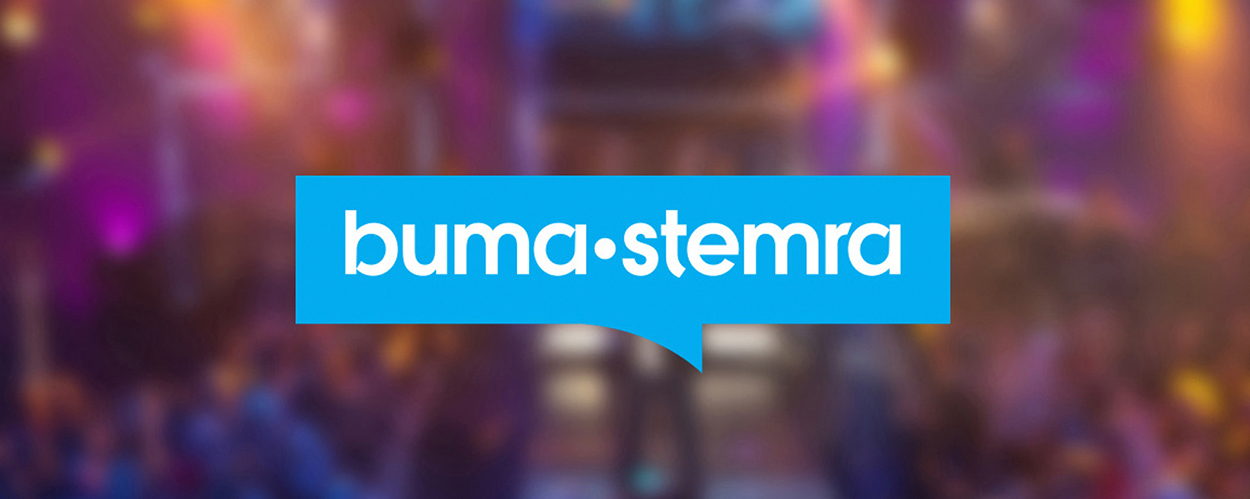This website uses cookies so that we can provide you with the best user experience possible. Cookie information is stored in your browser and performs functions such as recognising you when you return to our website and helping our team to understand which sections of the website you find most interesting and useful.
Business News Labels & Publishers Live Business Top Stories
Buma/Stemra to phase out controversial discounts for concert promoters
By Chris Cooke | Published on Thursday 24 November 2016

Dutch collecting society Buma/Stemra has announced it will phase out most of the discounts it offers concert promoters that secure public performance licences from the rights body. A 5% discount will remain for promoters who stage more than 25 shows a year and pay more than €100,000 in annual royalty fees into the society.
Discounts or rebates provided by collecting societies in some European countries to concert promoters have proven controversial of late in parts of the artist management community, partly because of a lack of transparency, especially when monies pass from one society to another through reciprocal agreements before a songwriter is paid.
Promoters of live music need a public performance licence from whoever controls the copyright in the songs which are performed at a show. That licence is normally acquired from the promoter’s local song rights collecting society – so PRS in the UK – which will usually charge an industry-standard rate.
The society then passes the money the promoter paid back to relevant songwriters and music publishers, either directly if the rights owners are members of said society, or via another society if not – so, for example, if a Dutch promoter stages a show by a British singer-songwriter, they would get a licence from Buma/Stemra, which would collect the money and pass it over to PRS, which would then pay the songwriter their cut.
Some British managers expressed concern that Buma/Stemra – and others – were offering concert promoters discounts, meaning ultimately their clients would receive less money from PRS, but that discount wasn’t declared by the promoter when the artist was discussing budgets and fees for the show. Therefore the artist would agree to terms with the promoter under the impression they’d be getting full rate rather than discounted public performance royalties through their collecting society.
The discounts offered by Buma/Stemra to promoters ranged from 10% to 25% depending on the amount of royalties a live firm was paying into the society. According to IQ, collecting societies in Belgium, Italy, Germany, Switzerland and France offer similar discount or rebate schemes, arguing that the kickbacks are dependent on certain conditions that make the royalty collecting process more efficient.
However, from next year, the Dutch society will only offer the new 5% discount, which will come with specific payment and reporting requirements. A more weighty discount for festivals will also be offered. Meanwhile, the rates the society charges live events – which vary from 3-7% depending on how much Buma/Stemra-repped repertoire is performed – will remain unchanged.
The society has told IQ that the new arrangement follows consultation with all stakeholders and has been approved by the CvTA, which regulates collective management organisations in the Netherlands. It adds that the new arrangement is “completely transparent, and creates a level playing field for all promoters, venues and festivals”.
The discounts offered to promoters by collecting societies in some countries – coupled with confusion over exactly how that is all working, especially when monies move between societies – have led some artists to opt for direct licensing when on tour, a move that has in turn proved controversial in some parts of the live industry.
In that scenario, an artist temporarily removes their live performance rights from their collecting society, and instead enters into a direct deal with a promoter to cover the public performance rights in their songs. That has created challenges for collecting societies where a headline artist performing their own material chooses to license direct, but support acts are still relying on their collecting society to license, or may perform songs they didn’t write.
Which is all good fun, isn’t it? Premium subscribers should look out for a CMU Trends article explaining how this all works in the new year.





